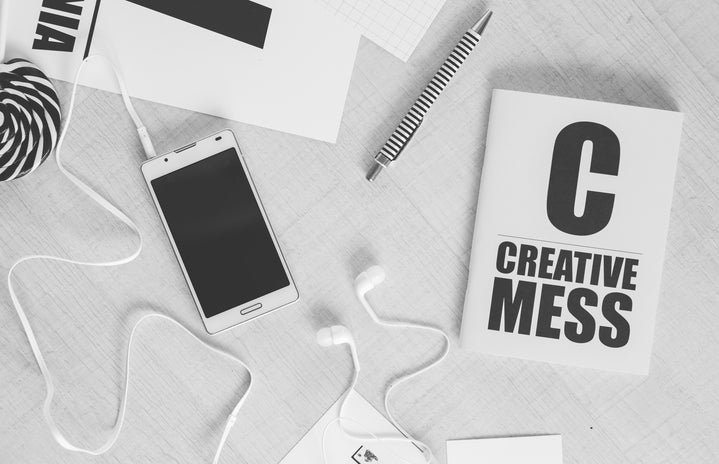Humans are emotional beings. And yet, it is difficult to understand how we process emotions and the consequences they can produce. When emotions get the best of us, it can be embarrassing or shameful, especially when our peers at work are privy to an outburst.
Dr. Don Greene, a peak performance psychologist, says, “There are innumerable sources of occupation stress,” listing deadlines, conflicts with coworkers or clients, dissatisfaction with your type of work or pay and lack of support as some of the issues we face on a daily basis that could bring someone to the edge.
A meltdown at work can take different forms: you could burst into tears in front of your boss, smash a fist against the wall after dealing with a particularly difficult client or use some not-so-polite language in conversation with that coworker you just can’t get along with. Feeling a loss of control, having an inability to prioritize or a finding difficulty dealing with personal issues could send you over the edge.
What happens when we lose control of our emotions in a professional setting? Most importantly, how do we salvage a professional, dependable reputation in the workplace after losing our cool?
What does a meltdown look like?
Most times, a meltdown at work is not the result of one, isolated stressful event. Rather, it is more of a “straw that broke the camel’s back” sequence where other events have been building up on your psyche until you simply snap.
When we get upset with family or friends for small misgivings, they’ll most likely forgive and forget. When we get snippy with the barista for messing up our much-needed coffee after a sleepless night, we’ll most likely never see them again. But when our work environment becomes the setting for an emotional slip-up, and our colleagues the recipients, we can find ourselves in unpleasant, startling situations.
Related: 5 Ways to Handle Workplace Conflict
For Megan Lawler, who works in advertising in Chicago, her built-up emotions became way too overbearing during a standard meeting.
“I had a pretty bad breakdown at work, the kind when you’re holding back tears and silently taking deep breaths in the middle of a meeting,” she says. “My team was being overworked and under-appreciated and our superiors kept piling more work on top of us. My growing to-do list was staring me in the face, and I basically burst.”
Annie*, a post-grad who works in entry-level accounts receivables, also provides an example of how constant issues at work can weigh on you to the point of serious discontent. Finding herself wildly dissatisfied with her current job and experiencing a level of discomfort at work most days prompts her to seek a sense of calm at a coffee shop nearby her office.
Her unhappiness, stemming from different aspects of her work environment, makes it difficult for Annie to get through a day without becoming overcome with anxiety.
“My coworkers—an entirely male staff except for one other female—are crude, I am so bored and I have the most passive boss of all time,” she says. “To fight through it, I remove myself from the space to walk to that coffee shop and remind myself that this is only temporary.”
If you find yourself in the midst or aftermath of a meltdown, it can leave you feeling powerless, ashamed and incapable of bouncing back. Dealing with the ramifications, then, is crucial to finding your way back to a sense of professionalism and productivity.
So, I broke down…Now what?
How you react to what happened is ultimately going to determine the future of your reputation at work. While avoiding any acknowledgement whatsoever may seem ideal—an out of sight, out of mind attitude can be attractive when you’re dealing with any level of humiliation— the best approach is to face it head on.
Recognizing your triggers in the first step in determining how to acknowledge them at work. Greene, who has 32 years of experience coaching performers and athletes to be their best, recommends taking into account any personal troubles that may determine how you approach the issue.
“The quality of your personal relationships and weekend activities outside of work can dramatically affect your emotional and mental energy during the week,” he says. “Your relationships and activities away from the job can replenish your energy or drain it.”
Personal troubles, then, can bleed into the workplace and find you more prone to breaking down.
“I have noticed that if I am fighting with my boyfriend, had a bad night or left my apartment a mess that I have a notably worse day at work,” Annie says.
Should at-home troubles be the case, discussing the episode with a superior is a route that may seem scary, but could ultimately be beneficial to how your work week is handled from that point on.
Margaret Gauthier, a third year student at Western University in London, Ontario, who has been working in the food industry for three years, had a rocky start when she first began her job. Having a hard time balancing work, life and school and finding herself on the brink of a meltdown, she finally decided to speak to her boss and quit her job.
What happened when approaching her supervisor, though, helped her carry on and made her more productive not only at work but in other aspects of her daily life. By working with her to create a new, more manageable schedule, Margaret’s supervisor was supportive and gave her the ability to succeed.
“Sometimes it’s worth it to talk to the scary person in charge. They might end up being one of your biggest supporters,” Margaret says. “I found it was helpful just to admit that I needed help, or that I wasn’t sure what to do or how to do it.”
Should your meltdown stem from more in-house grievances, you’ll still want to tackle consequences directly. Dr. Greene suggests planning an honest, rehearsed conversation punctuated by an apology to address what led up to your lapse in control.
“You could explain the events that lead up to the meltdown and how that made you feel and react the way that you did,” he says. “Make sure that you inform them about what actions you will be taking so that it will never happen again.”
Especially if your emotional lapse happens in front of colleagues, acknowledging that you slipped up, why and assuring that you’ll get it under control is what those around us want to hear. You’re surrounded by your coworkers and supervisors for the better part of every day; trusting those you work with to hear you out when you take responsibility is the first step to keeping your wits about you next time.
To approach the consequences of your meltdown with others besides your superiors, owning the perspective and taking control of your reputation of the spectacle has been to known to be successful.
A study out of Harvard found that if you define the meltdown on your own terms, your peers will find a way to maintain respect. It’s called “emotion reframing,” in which showcasing a dedication to the job can sway the opinion of anyone who observed your moment of weakness.
During five experiments, the study found that colleagues considered those who suffered a meltdown as less competent at their jobs. However, the results showed that by attributing the incident to an issue of passion for your work rather than distress, observers were more willing to forgive and forget and maintained a more positive opinion of the employee.
Whichever way you approach the situation post-meltdown, however, apologizing and owning your issues is the best way to move past the episode.
Don’t do it again!
You’ve had a meltdown at work, you’ve addressed the consequences with your peers—don’t just sit back and wait for it to happen again.
When unhappy at work, not only is your emotional balance at stake but freaking out in the workplace limits your ability to be productive. As Megan found, letting her emotions get the best of her made it difficult to keep up with her work, a cycle that threatened to continue repeating itself if not dealt with.
“It hurt me, because I was totally zoned out during the meeting. I wasn’t able to pay attention because I was too busy having an internal panic attack, and I wasn’t able to fully participate or offer my insights like I normally would,” she says.
To prevent future meltdowns, it’s a good idea to take some steps to evaluate yourself and your surroundings. Barring a deeper emotional instability, addressing what prompted your meltdown—whether it be a work-life balance, your work environment, or other triggers—is a necessary means to stay productive.
Once you identify what is haunting you in and out of work, you can take precautions to avoid a meltdown the next time something flares up. Becoming self-aware of your worries, and subsequently coming up with appropriate responses to your stressors before getting to work, makes for a decent work environment for everyone involved.
Staying healthy is also key to keeping a handle on your daily stress. Megan, for example, found that lack of sleep was making it hard for her to appropriately handle her workload.
“When you’re working late nights and have to get up early to put in another full day, you become less and less able to deal with the stress properly,” she says.
Meditation, Megan says, has been instrumental in providing some balance to her work day, saying that “it energizes you and focuses your mind.”
Dr. Greene, in fact, agrees that on the brink of a meltdown, finding a way to center yourself will help to ward off a debilitating loss of control. He proposes calm ways to keep your emotions in check.
“If possible, remove yourself from the immediate situation. Try to get to a quiet, private place. Take several slow deep breaths focused only on your breathing,” says Greene. “Recall being in one of your favorite places or doing what you love for a few seconds.”
Annie, similarly, finds that she has adapted to her own disadvantageous workplace surroundings as best she can to ensure a sense of productivity and professionalism without feeling so powerless.
“I really pride myself on being level-headed and professional, but I know that at times when I feel so isolated and unappreciated at work, I start to become really introverted and stop making an effort to reach out to my coworkers and boss,” she says. “In order to keep my feelings in check and my work productive with my colleagues, I have made a point to speak clearly, concisely and only about the task at hand to avoid any sort of drama or sidetracking.”
Seeking realistic solutions and knowing when to shrug it off, says Dr. Greene, will put you in a better place mentally and professionally.
“You could tell yourself to find a functional coping strategy, a better job, or that it is too important to take too seriously. A sense of humor can be a great help in challenging situations,” he says.
Annie says that prioritizing work and keeping a manageable to-do list is important to be able to maintain a healthy work day.
“It has become so important to me to have a sacred, calm, and love-filled personal life to help make my work life more manageable,” says Annie.
Workplace meltdowns are not the end of the world—or your career. In the end, we’re all human, and the going gets rough. Keep in mind the importance of staying transparent and humble if you ever find yourself on the wrong end of a workplace meltdown and seek healthy, responsive ways to help yourself avoid them altogether.
*Name has been changed


